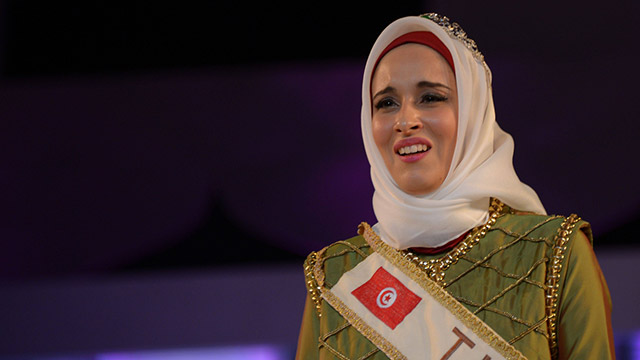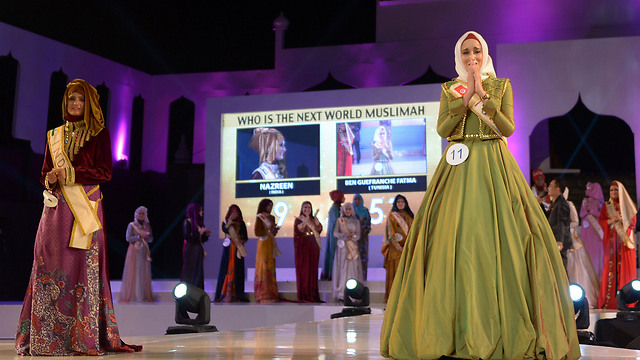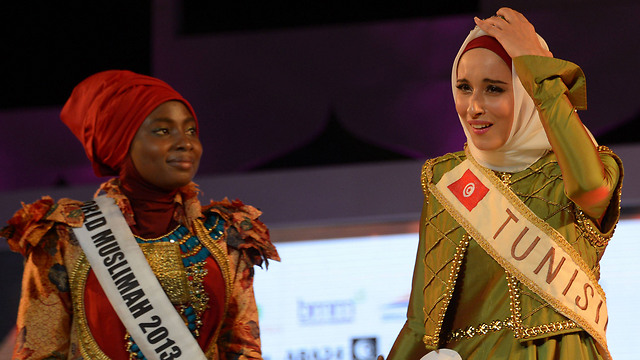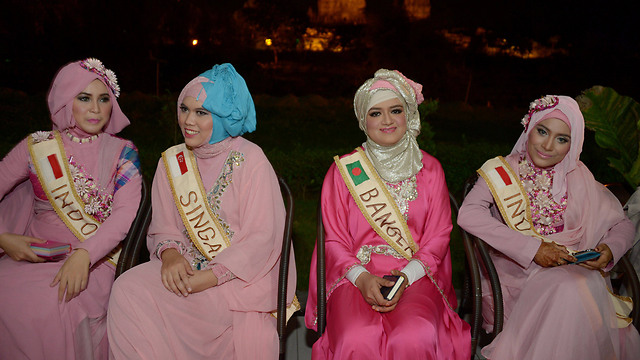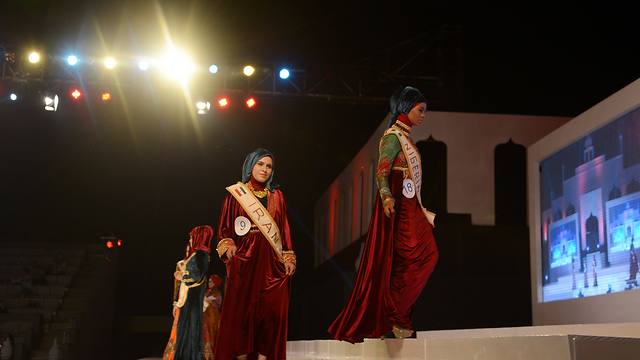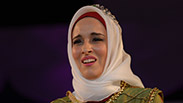
Newly-crowned Miss Islam calls to 'free Palestine'
'May almighty Allah help me in my mission,' says Tunisian winner of Muslim response to Western beauty contests. 18 contenders participated in the final in Indonesia wearing headscarves and were tested on their knowledge of the Koran. The prize included a trip to Mecca.
The winner was Fatma Ben Guefrache, a 25-year-old Tunisian computer scientist. She won a gold watch, a gold dinar, and a visit to Mecca.
"May almighty Allah help me in my mission and free Palestine. Please, please free Palestine and the Syrian people," Fatma said with tears in her eyes.
The contestants were judged based not only on their physical appearance, but also for their ability to quote from the Koran and their views on Islam's palce in the modern world.
"We want to show that they understand everything about the Muslim way of life – from what they eat and wear, to how they live their lives," said one of the contest's organizers.
The World Muslimah is a title that first drew international attention in 2013, when organizers presented it as a peaceful protest against the Miss World contest, which took place concurrently in Bali. The Miss World contest has received mounting criticism in recent years for demeaning women, particularly in the bikini section.
The British contender, Dina Torkia, said she hoped that this year's competition would not just serve as a counter to the West's beauty contest, but also change preconceived notions about Islam.
"I think the most important thing is to show that we are completely normal girls. We don't marry terrorists. My headscarf is not actually scary," she said.
Some contestants faced challenges that were unrelated to modeling. Seven contestants who reached the final round dropped out, mostly because their families did not want them to travel to Indonesia alone.
Others backed out after struggling with Indonesia's tangled bureaucracy while trying to obtain a visa. The Indian candidate missed her flight after being questioned by airport authorities, who became suspicious about a woman with a headscarf traveling alone. She eventually managed to board another plane.
Still others made sacrifices to participate. Masturah Binte Jamil of Singapore left her teaching job after her employer refused to give her time off to participate. World Muslimah organizers hope to present positive role models for Muslim women and are proud that one contender is a doctor from Bangladesh.
Not all the women enjoyed the final round. Torkia said her early optimism gave way to disappointment. "I arrived hoping to leave here with increased faith. But so far there's been a lot of promotion, media, and looking pretty," she said.
The final round was the end of a lengthy process, which included an internet audition and two weeks of events in Indonesia. During their stay, the participants visited orphanages and nursing homes, and were photographed at a well-known Buddhist temple.
The final took place against the backdrop of Prambanan, a ninth-century complex of Hindu temples. Organizers chose the site to show that Muslims are accepting of other religions.










